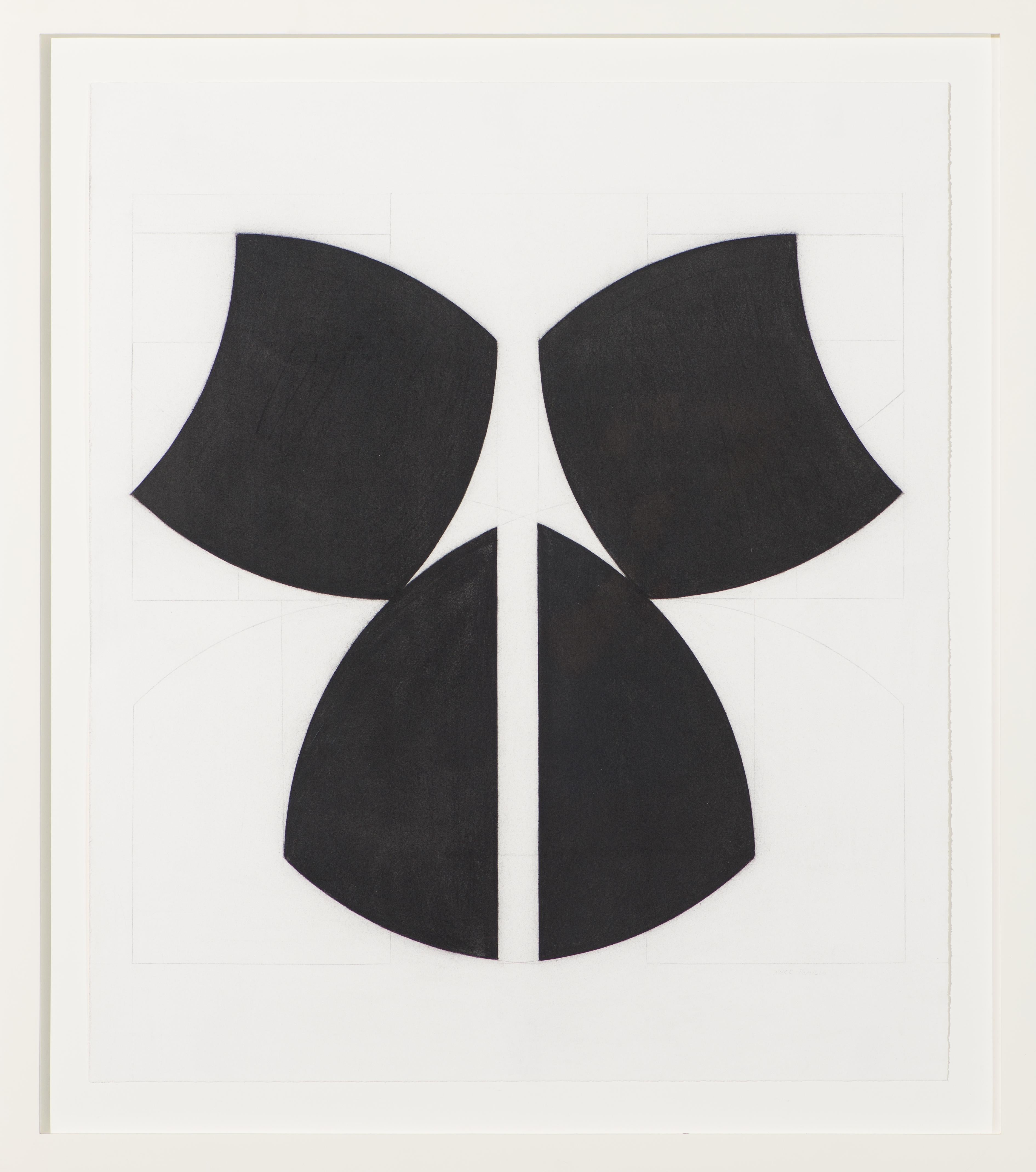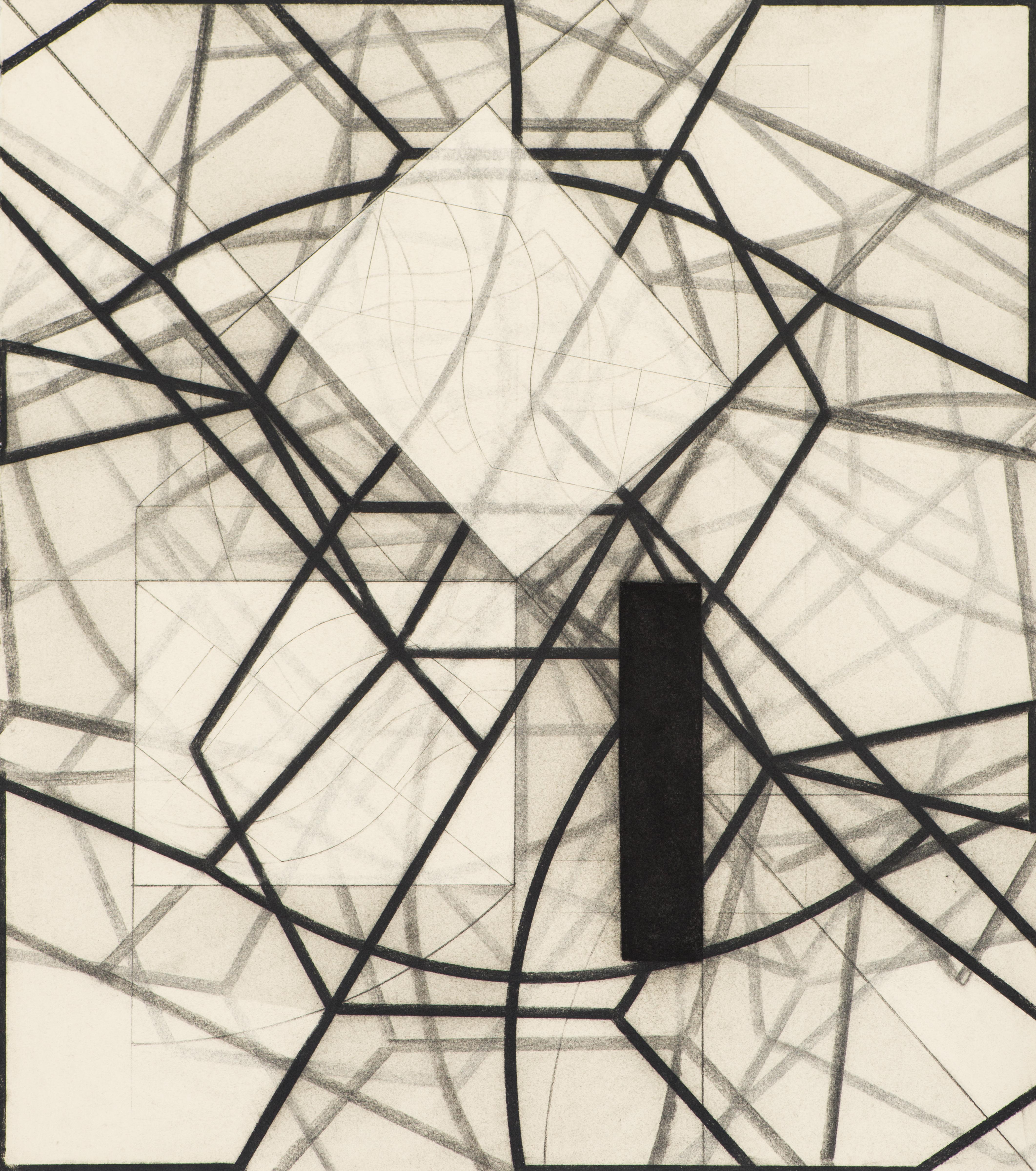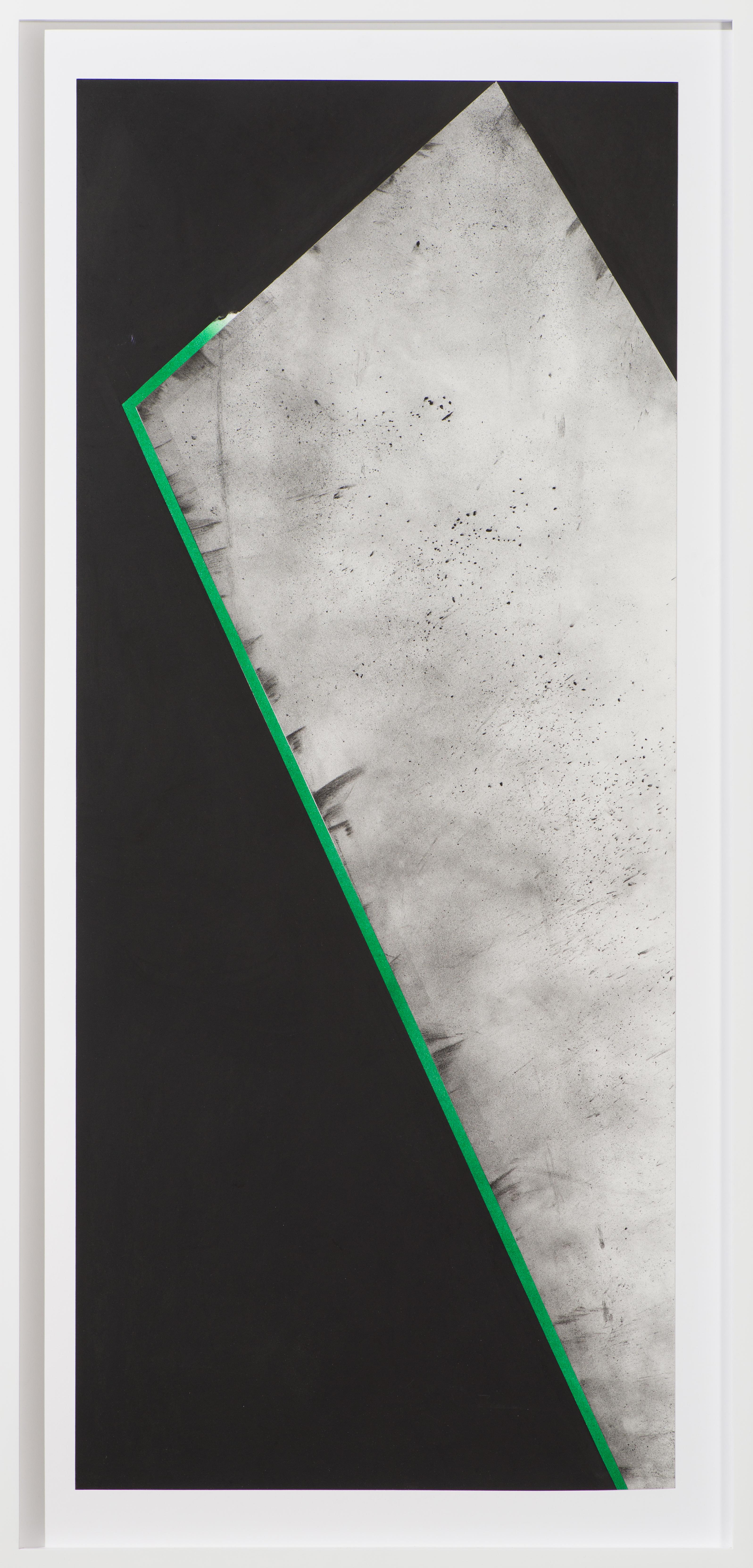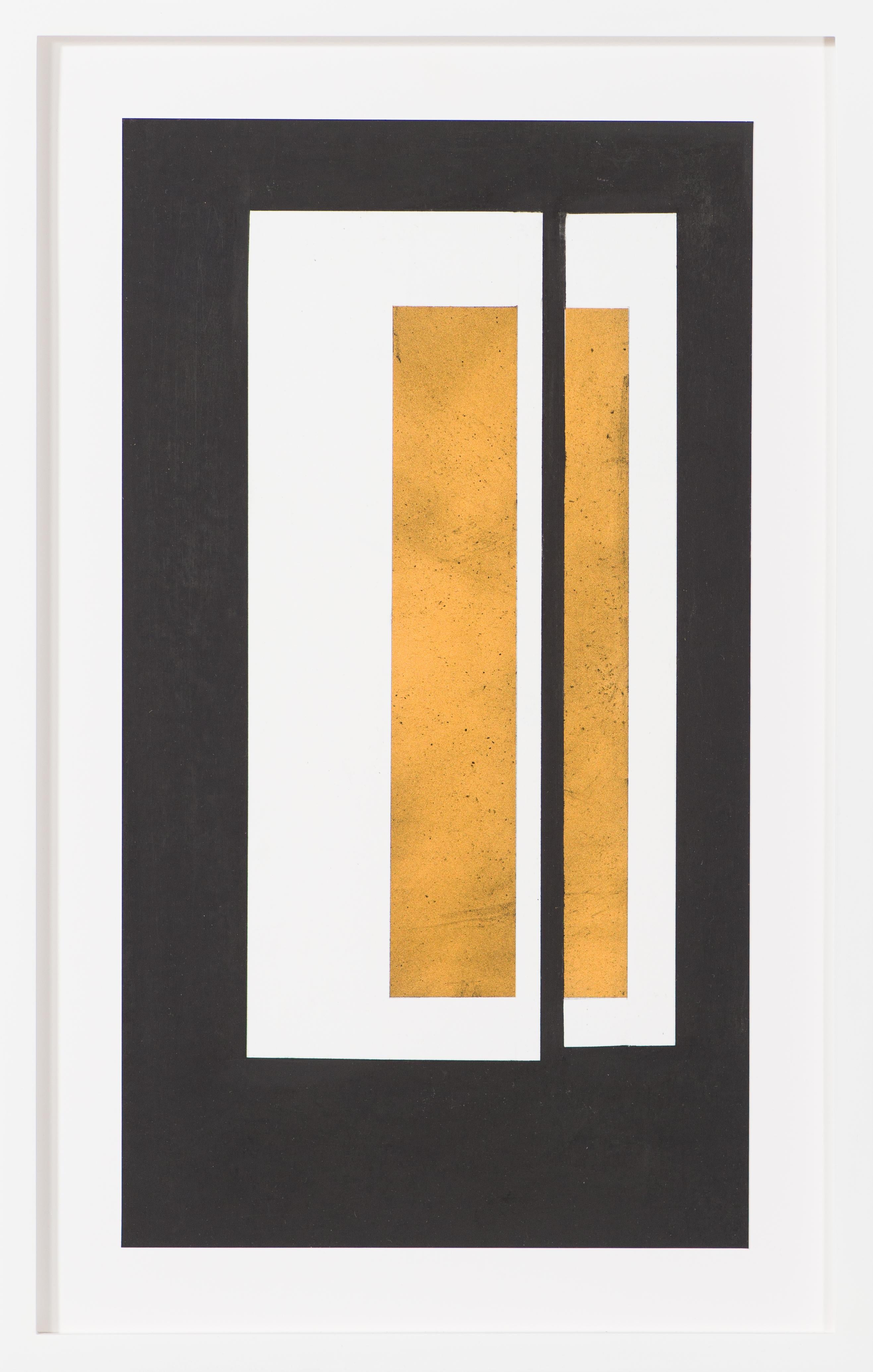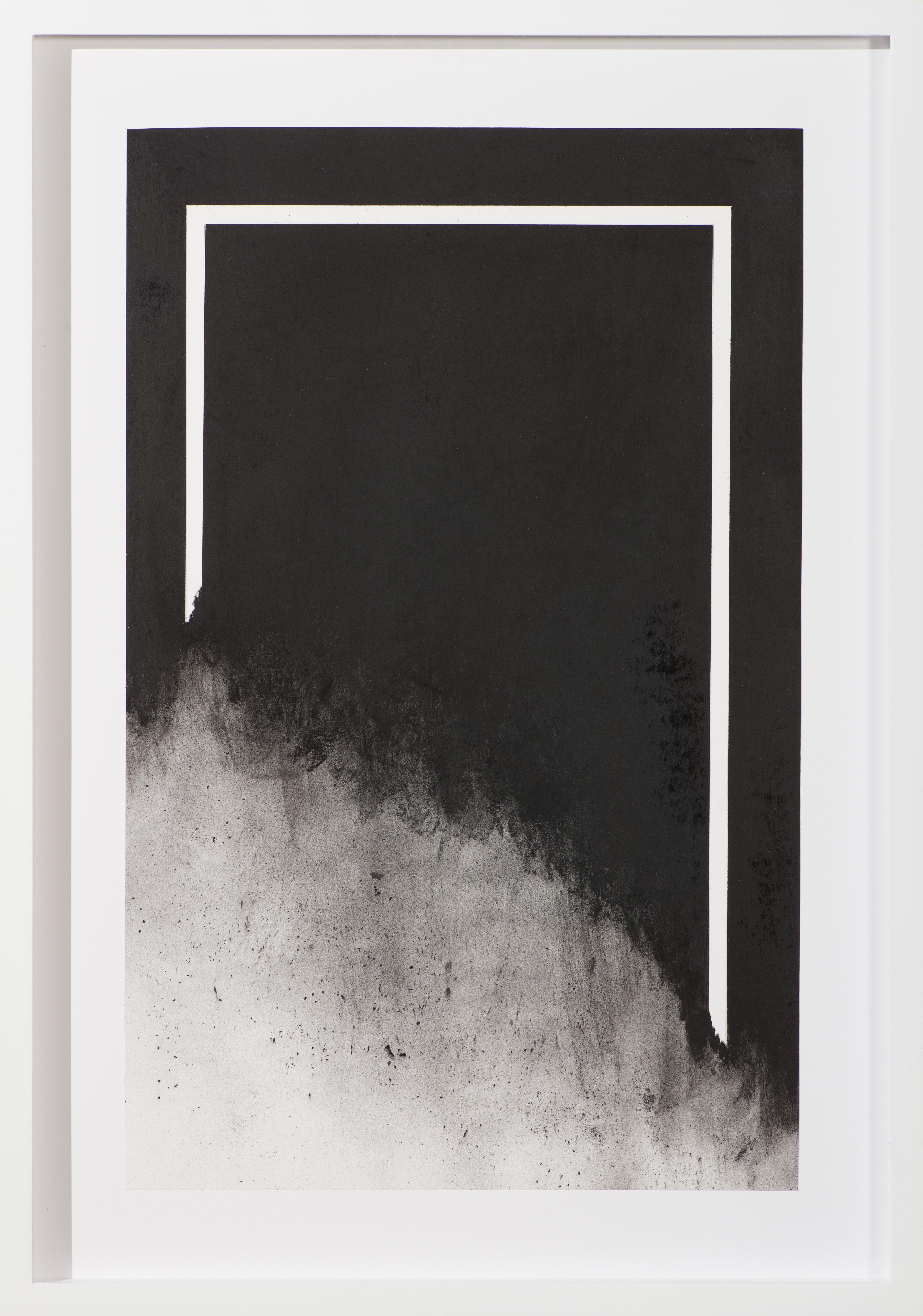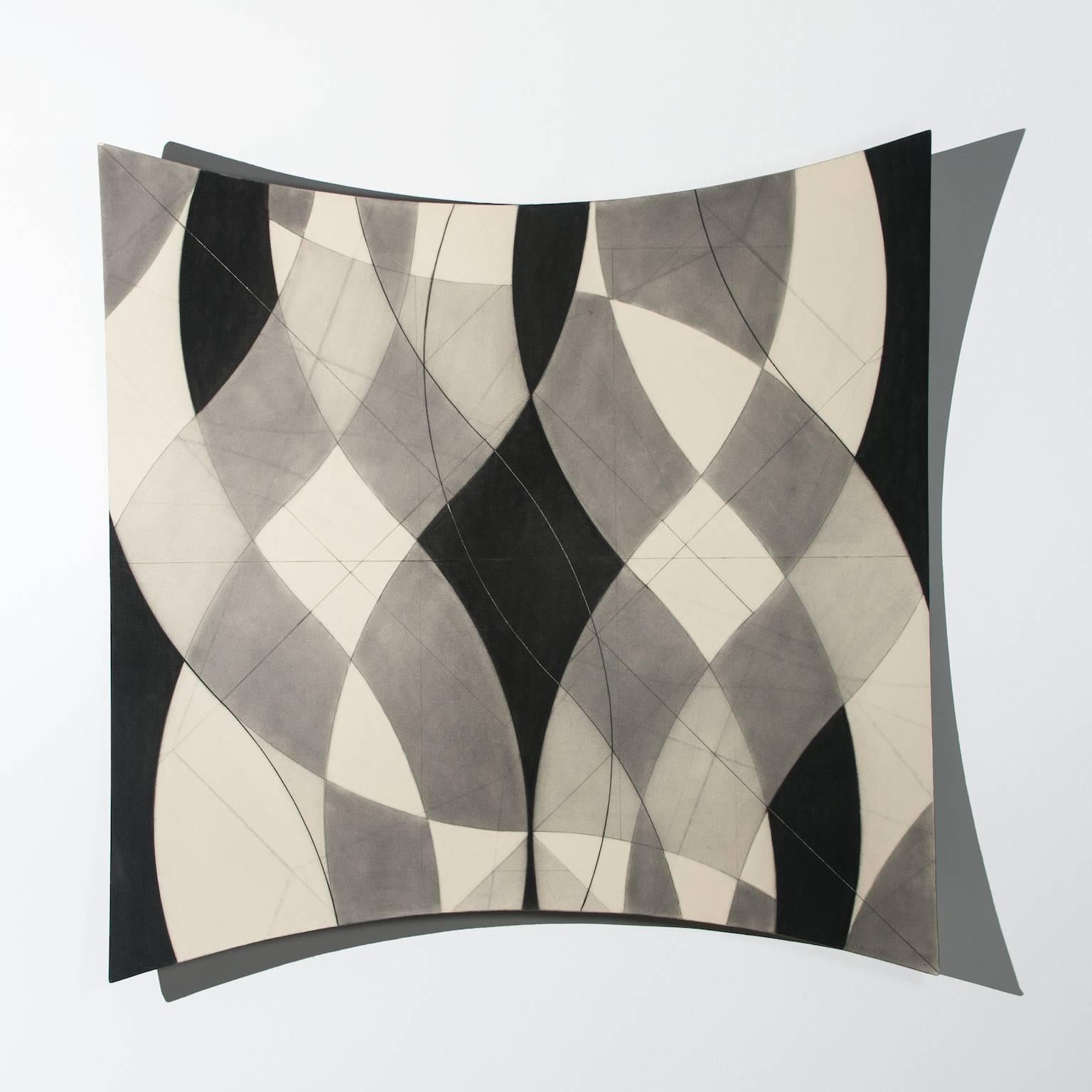Want more images or videos?
Request additional images or videos from the seller
1 of 8
Mark PomilioFractal Dance IX2013
2013
About the Item
charcoal on paper
Mark Pomilio’s method, motives, and conceptual considerations are centered on visually articulating recent developments in the life sciences. It is not his intent to condemn or celebrate these developments, but rather, to express their profound relevance within our current era. He has chosen to create imagery, which expresses a developmental process rather than an overt visual depiction. The origin of this research has been formulated through a series of simple geometrical equations. These equations have yielded a group of “parent” rudimentary geometrical forms. One or several of these forms are multiplied and folded equally throughout the pictorial field. Through this process, a formal, pictorial, structure is born. Therefore each image has evolved through the development of pictorial representations of geometric systems of growth. This “parent” form is representative and meant to emulate a single cell dividing and compounding into a complex organism. Therefore, within the image field, each decision is multiplied equally throughout the field, causing a type of visual unity. This balance and symmetry has a visual equivalency in how we read the meditative qualities of a reflective pool, or a religious icon. In the end, his goal is to force a harmony upon the image field that, in turn, forces a potential meaning through the integration of the image and title.
The geometrical forms used to create the images found within the CCS (Cloned Cell Series) & Family Circle Series have much in common with the manner in which scientific publications express cell structures visually. In these publications, the geometrical pictorial forms of the pentagon and hexagon are varied in their arrangement and each construction has differing associations. In this work, I have combined these forms with a form I have invented, which resembles the contour of a house in perspective. This form, conceptually, is representative of the family nucleus; which is on the verge of profound changes, as new discoveries in cloning and the life sciences interface with society. The six sided house form also has the inherent ability to unify the other geometrical forms pictorially. All three forms are utilized to create a work that addresses my individual societal concerns, as well as my formal and aesthetic concerns.
Mark Pomilio has exhibited his work extensively across the United States and abroad. His work is included in the permanent collections of Baylor University, Martin Museum of Art, Waco, TX; Dupont Corporation, Wilmington, DE; University of Arizona, Museum of Art, Tucson, AZ; University of Michigan, Ann Arbor, MI; in addition to many private collections. He currently lives and works in Arizona and teaches painting and drawing at Arizona State University.
- Creator:Mark Pomilio (1959)
- Creation Year:2013
- Dimensions:Height: 25.25 in (64.14 cm)Width: 22.25 in (56.52 cm)
- Medium:
- Movement & Style:
- Period:
- Condition:
- Gallery Location:Phoenix, AZ
- Reference Number:1stDibs: LU13712204252
About the Seller
5.0
Gold Seller
These expertly vetted sellers are highly rated and consistently exceed customer expectations.
Established in 1984
1stDibs seller since 2012
61 sales on 1stDibs
- ShippingRetrieving quote...Ships From: Phoenix, AZ
- Return PolicyA return for this item may be initiated within 3 days of delivery.
More From This SellerView All
- Primal Drawing IVBy Mark PomilioLocated in Phoenix, AZcharcoal on paper (41.75 x 36.75 x 1.75 inches) Mark Pomilio’s method, motives, and conceptual considerations are centered on visually articulating recent developments in the life ...Category
2010s Abstract Geometric Drawings and Watercolor Paintings
MaterialsArchival Paper, Charcoal
- Fractal Dance VIIIBy Mark PomilioLocated in Phoenix, AZcharcoal on paper Mark Pomilio’s method, motives, and conceptual considerations are centered on visually articulating recent developments in the life sciences. It is not his intent ...Category
2010s Abstract Geometric Abstract Drawings and Watercolors
MaterialsCharcoal, Archival Paper
- Bi-Fold IXBy Mark PomilioLocated in Phoenix, AZcharcoal on paper mounted to silk foam core and wood Mark Pomilio’s work focuses on the research of fractals, cloning, and single cell manipulation. His mathematics-based drawings serve as a metaphor for naturally occurring systems of reproduction and growth. When Pomilio begins a piece, he doesn’t know where it will lead; although his tools and marks are precise, the layering, repetition, rotation, and distribution of basic shapes are improvised to emulate a single cell dividing and compounding into a complex form. The process of cell growth influences Pomilio’s practice and is emphasized through his own process, the use of erasure, faint outlines, opacity and translucency, and deliberate marks. The resulting compositions are balanced, unified, and harmonious. His work is included in the collections of the University of Arizona Museum of Art, Baylor University Martin Museum of Art, Dupont Corporation, University of Michigan...Category
2010s Abstract Geometric Abstract Sculptures
MaterialsArchival Paper, Silk, Wood, Charcoal, Foam Board
- Untitled 11By George ThiewesLocated in Phoenix, AZcharcoal and pearl paint on paper 52.25 x 25.25 x 1.5 inches framed In the fields of sculpture and drawing, George Thiewes creates sharp, angular work with a focus on the interacti...Category
2010s Abstract Geometric Abstract Drawings and Watercolors
MaterialsPaint, Paper, Charcoal
- Untitled 14By George ThiewesLocated in Phoenix, AZcharcoal and pearl paint on paper 21.75 x 13.75 x 1.5 inches framed In the fields of sculpture and drawing, George Thiewes creates sharp, angular work with a focus on the interacti...Category
2010s Abstract Geometric Abstract Drawings and Watercolors
MaterialsPaint, Paper, Charcoal
- Untitled 10By George ThiewesLocated in Phoenix, AZcharcoal on paper 27.25 x 19.25 x 1.5 inches framed In the fields of sculpture and drawing, George Thiewes creates sharp, angular work with a focus on the interaction of light and ...Category
2010s Abstract Geometric Abstract Drawings and Watercolors
MaterialsPaper, Charcoal
You May Also Like
- Mid Century Modern East Bay Abstracted Industrial LandscapeBy Erle LoranLocated in Soquel, CADynamic abstracted geometric landscape drawing of the industrial East Bay California landscape by Erle Loran (American, 1905-1999), circa 1940. From collectio...Category
1940s Abstract Geometric Landscape Drawings and Watercolors
MaterialsCharcoal, Laid Paper
- "Oranges July 4 1991" Modern Abstract Geometric Black and White Charcoal DrawingBy Donald SultanLocated in Houston, TXModern black and white charcoal still life drawing by iconic abstract artist Donald Sultan. The work features a dynamic composition of circular forms set against a white background. The rich black tones, emblematic of Sultan's work, make this work pop. Titled, dated, and signed along top margin. Currently hung in a complementary black floating frame. Dimensions Without Frame: H 48 in. x W 60 in. Artist Biography: Born in 1951 in Asheville, North Carolina, Donald Sultan rose...Category
1990s Abstract Geometric Abstract Drawings and Watercolors
MaterialsPaper, Charcoal
- Blue Springs Semi Upper LevelBy Kory TwaddleLocated in Kansas City, MOArtist : Kory Twaddle Title : Blue Springs Semi Upper Level Materials : Colored pencil, marker, tempera, gouache, stickers, tape, glitter glue, pastel, oil pastel, acrylic, graphite...Category
2010s Abstract Geometric Mixed Media
MaterialsPaint, Paper, Conté, Charcoal, India Ink, Acrylic, Tempera, Watercolor, ...
- Untitled (Līnea Study), 2022Located in Washington, DCOriginal work on Arches paper by Mary Early. "The production, or “pouring,” of beeswax elements has become a meditative process that is integral to my art practice, serving as an observation of time, materials, and space. The raw beeswax I use has taken its form at the end of a long series of natural processes followed by a manufacturing process, and once it is in my hands, the studio becomes a factory. I apply my own methods of transforming the material by casting the beeswax into three-dimensional forms. Once I have fixed both a place and a time in the future for a potential installation, I begin to determine how the beeswax lines will take their aggregated shape in that space and, simultaneously, how many lines might be manufactured for that particular space in the amount of time available." Mary Early (born 1975, Washington, DC) lives and works in Washington, DC. She studied visual art, film, and video at Bennington College, and her work has been exhibited at the United States Botanic Garden, Washington Project for the Arts, the Corcoran Gallery of Art, Second Street Gallery (Charlottesville, VA), Hemphill Fine Arts (Washington DC,) the Austrian Cultural Forum (Washington DC), Galerie Im Ersten (Vienna, Austria), Kloster Schloss Salem (Salem, Germany), Kunstlerbund Tubingen (Tubingen, Germany), and the American University Museum (Washington DC) among other regional and national galleries. Her early work incorporated formed concrete, tarpaper and paraffin wax, fabricated wood structures, and, increasingly over the years, surfaces coated with wax as a method of preserving or concealing an object within. Recent works have relied solely on solid forms cast in wax, abandoning the use of any permanent armature. Temporary installations are guided by schematic drawings and plans, which then serve as a permanent record. In 2014 she exhibited her first large-scale installation of wax lines at Second Street Gallery in Charlottesville, VA, followed by temporary installations in response to various historical sites in Salem, Germany (2016) and Tubingen Germany (2017). In 2017 she participated in the exhibition “Twist-Layer-Pour” at the American University Museum, which included Untitled [Curve], an installation of thousands of beeswax lines assembled on the floor of the museum. In spring 2018 she was commissioned to create a temporary installation at the Sun Valley Center for the Arts, Sun Valley Idaho. This work took the form of two intersecting curtains of hanging beeswax lines bisecting a 12’ foot x 18’ foot room, providing an immersive and enclosed viewing space. Early’s work is included in the collections of the US Department of State/Embassy of Panama, Kimpton Hotels, and the District of Columbia Art Bank among other public and private collections. She is a recipient of the Artist Fellowship Grant from the DC Commission on Arts & Humanities, Washington DC (2020, 2019, 2018, 2017, 2016, 2015, 2014, 2011, 2009, 2007). Early is the director of HEMPHILL Fine Arts, Washington, DC, and serves on the boards of Hamiltonian Artists and Washington Sculptors Group. She handles the work of contemporary artists and artist estates, including the work of William Christenberry, Colby Caldwell, Hedieh Javanshir Ilchi, Linling Lu, Mingering Mike, Robin Rose, Renée Stout...Category
21st Century and Contemporary Abstract Geometric Mixed Media
MaterialsWax Crayon, Sumi Ink, Archival Paper, Graphite
- Untitled (Līnea Study), 2022Located in Washington, DCOriginal work by Mary Early. Graphite, wax crayon, and sumi ink on Arches paper, 12.25 x 16". "The production, or “pouring,” of beeswax elements has become a meditative process that is integral to my art practice, serving as an observation of time, materials, and space. The raw beeswax I use has taken its form at the end of a long series of natural processes followed by a manufacturing process, and once it is in my hands, the studio becomes a factory. I apply my own methods of transforming the material by casting the beeswax into three-dimensional forms. Once I have fixed both a place and a time in the future for a potential installation, I begin to determine how the beeswax lines will take their aggregated shape in that space and, simultaneously, how many lines might be manufactured for that particular space in the amount of time available." Mary Early (born 1975, Washington, DC) lives and works in Washington, DC. She studied visual art, film, and video at Bennington College, and her work has been exhibited at the United States Botanic Garden, Washington Project for the Arts, the Corcoran Gallery of Art, Second Street Gallery (Charlottesville, VA), Hemphill Fine Arts (Washington DC,) the Austrian Cultural Forum (Washington DC), Galerie Im Ersten (Vienna, Austria), Kloster Schloss Salem (Salem, Germany), Kunstlerbund Tubingen (Tubingen, Germany), and the American University Museum (Washington DC) among other regional and national galleries. Her early work incorporated formed concrete, tarpaper and paraffin wax, fabricated wood structures, and, increasingly over the years, surfaces coated with wax as a method of preserving or concealing an object within. Recent works have relied solely on solid forms cast in wax, abandoning the use of any permanent armature. Temporary installations are guided by schematic drawings and plans, which then serve as a permanent record. In 2014 she exhibited her first large-scale installation of wax lines at Second Street Gallery in Charlottesville, VA, followed by temporary installations in response to various historical sites in Salem, Germany (2016) and Tubingen Germany (2017). In 2017 she participated in the exhibition “Twist-Layer-Pour” at the American University Museum, which included Untitled [Curve], an installation of thousands of beeswax lines assembled on the floor of the museum. In spring 2018 she was commissioned to create a temporary installation at the Sun Valley Center for the Arts, Sun Valley Idaho. This work took the form of two intersecting curtains of hanging beeswax lines bisecting a 12’ foot x 18’ foot room, providing an immersive and enclosed viewing space. Early’s work is included in the collections of the US Department of State/Embassy of Panama, Kimpton Hotels, and the District of Columbia Art Bank among other public and private collections. She is a recipient of the Artist Fellowship Grant from the DC Commission on Arts & Humanities, Washington DC (2020, 2019, 2018, 2017, 2016, 2015, 2014, 2011, 2009, 2007). Early is the director of HEMPHILL Fine Arts, Washington, DC, and serves on the boards of Hamiltonian Artists and Washington Sculptors Group. She handles the work of contemporary artists and artist estates, including the work of William Christenberry, Colby Caldwell, Hedieh Javanshir Ilchi, Linling Lu, Mingering Mike, Robin Rose, Renée Stout...Category
21st Century and Contemporary Abstract Geometric Mixed Media
MaterialsArchival Paper, Graphite, Wax Crayon, Sumi Ink
- Untitled (Līnea Study), 2022Located in Washington, DCOriginal work by Mary Early. Work is graphite, wax crayon, and sumi ink on Arches paper, 12 1/4 x 16". "The production, or “pouring,” of beeswax elements has become a meditative process that is integral to my art practice, serving as an observation of time, materials, and space. The raw beeswax I use has taken its form at the end of a long series of natural processes followed by a manufacturing process, and once it is in my hands, the studio becomes a factory. I apply my own methods of transforming the material by casting the beeswax into three-dimensional forms. Once I have fixed both a place and a time in the future for a potential installation, I begin to determine how the beeswax lines will take their aggregated shape in that space and, simultaneously, how many lines might be manufactured for that particular space in the amount of time available." Mary Early (born 1975, Washington, DC) lives and works in Washington, DC. She studied visual art, film, and video at Bennington College, and her work has been exhibited at the United States Botanic Garden, Washington Project for the Arts, the Corcoran Gallery of Art, Second Street Gallery (Charlottesville, VA), Hemphill Fine Arts (Washington DC,) the Austrian Cultural Forum (Washington DC), Galerie Im Ersten (Vienna, Austria), Kloster Schloss Salem (Salem, Germany), Kunstlerbund Tubingen (Tubingen, Germany), and the American University Museum (Washington DC) among other regional and national galleries. Her early work incorporated formed concrete, tarpaper and paraffin wax, fabricated wood structures, and, increasingly over the years, surfaces coated with wax as a method of preserving or concealing an object within. Recent works have relied solely on solid forms cast in wax, abandoning the use of any permanent armature. Temporary installations are guided by schematic drawings and plans, which then serve as a permanent record. In 2014 she exhibited her first large-scale installation of wax lines at Second Street Gallery in Charlottesville, VA, followed by temporary installations in response to various historical sites in Salem, Germany (2016) and Tubingen Germany (2017). In 2017 she participated in the exhibition “Twist-Layer-Pour” at the American University Museum, which included Untitled [Curve], an installation of thousands of beeswax lines assembled on the floor of the museum. In spring 2018 she was commissioned to create a temporary installation at the Sun Valley Center for the Arts, Sun Valley Idaho. This work took the form of two intersecting curtains of hanging beeswax lines bisecting a 12’ foot x 18’ foot room, providing an immersive and enclosed viewing space. Early’s work is included in the collections of the US Department of State/Embassy of Panama, Kimpton Hotels, and the District of Columbia Art Bank among other public and private collections. She is a recipient of the Artist Fellowship Grant from the DC Commission on Arts & Humanities, Washington DC (2020, 2019, 2018, 2017, 2016, 2015, 2014, 2011, 2009, 2007). Early is the director of HEMPHILL Fine Arts, Washington, DC, and serves on the boards of Hamiltonian Artists and Washington Sculptors Group. She handles the work of contemporary artists and artist estates, including the work of William Christenberry, Colby Caldwell, Hedieh Javanshir Ilchi, Linling Lu, Mingering Mike, Robin Rose, Renée Stout...Category
21st Century and Contemporary Abstract Geometric Mixed Media
MaterialsWax Crayon, Sumi Ink, Archival Paper, Graphite
